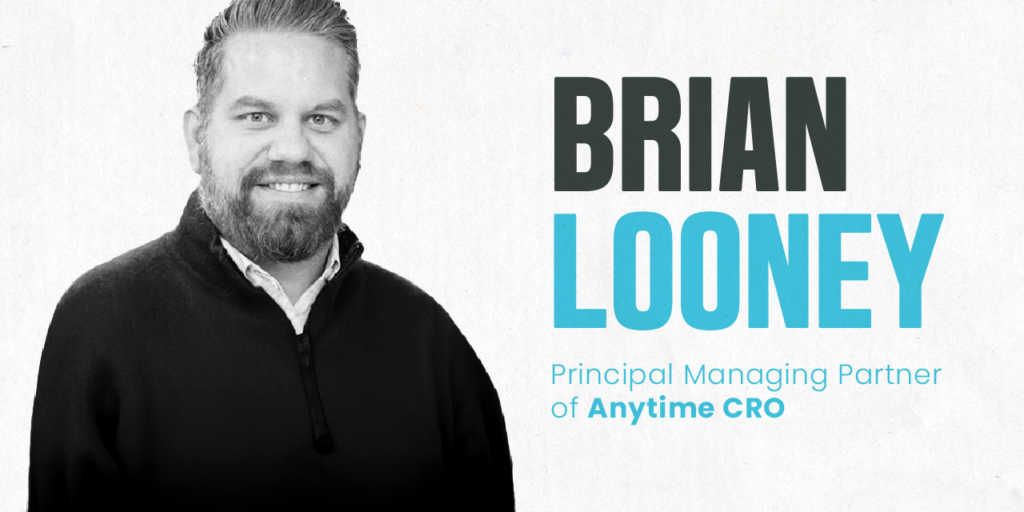In the bustling landscape of entrepreneurship, Brian Looney’s landscape is particularly multifaceted and enlightening. Balancing family life with professional responsibilities, Brian has navigated the intricate world of startups with a unique blend of expertise and adaptability.
During our conversation, Brian shared valuable insights about this journey, offering lessons for aspiring entrepreneurs and seasoned business owners alike.
Balancing Family and Business
When we connected, Brian was in the midst of a typical entrepreneurial balancing act—managing his professional commitments while caring for his 10-year-old son. “I’m playing daddy at the same time as doing all this,” he laughed, recounting a morning spent teaching his son and a friend how to make pancakes. It’s a scene many entrepreneurs will recognize: the constant juggle of personal and professional responsibilities.
The Evolution of a Consultant
Brian’s professional journey has been characterized by a series of transformative roles, primarily centered around his current venture, Anytime CRO. Also the acting Chief Commercial Officer for WebKyte, Brian’s expertise lies in building sales organizations and guiding startups through critical growth phases. His role there involves professionalizing sales processes and revenue generation strategies, essential components for any startup aiming to scale effectively.
Building Sales Organizations
One of Brian’s more notable projects was with Huski, a startup he co-founded. Despite raising nearly $6 million in venture capital, Brian and his co-founders faced significant disagreements about the company’s direction. “We diverted where I thought the business should go and what they were wanting to do,” he recounted. This divergence led to Brian stepping away from the company, a decision driven by the realization that they were not aligned on the business’ future.
The Challenges of Founder Dynamics
Brian’s experience with Huski underscores a crucial aspect of entrepreneurship: the dynamics between founders. “Engineers think very differently than salespeople,” he noted when we spoke.
The tension between different working styles can create significant friction, as was the case with Huski. “My co-founders became more insular, and we just weren’t on the same page.”
This experience taught Brian the importance of understanding and accommodating different personality types within a startup. “The key is to have everyone talk about their work styles and figure out approaches that can make the business work across those elements,” he advised. Taking personality tests early on can help identify potential conflicts and align the team on common goals.
Trust and Delegation
Brian emphasized the importance of trust and delegation in a startup’s success. “Successful founder CEOs are the ones that can trust the people they bring in and buy into the long-term vision,” he said. He noted that many founders struggle with letting go of control, which can stifle growth. “You’re not giving up control; you’re freeing yourself of the burden,” he explained.
Professionalizing Sales Processes
At the core of Brian’s work is the professionalization of sales processes. This involves everything from hiring and training sales teams to developing effective go-to-market strategies. “Founder-led organizations often focus too much on themselves and their solutions,” Brian said. His approach is to shift the focus to the customer’s problems and how the company’s products can solve them.
Brian also highlighted the importance of implementing a robust sales methodology. “You need to understand where you are in the deal and have a process that you can repeat,” he advised. This helps startups scale their sales efforts and maintain consistency as they grow.
The Role of Customer Success
Another critical component of Brian’s strategy is customer success. “Your best salespeople are your existing customers,” he noted. By leveraging customer stories and referrals, startups can build a strong foundation for sustained growth. Implementing a customer success system helps track these interactions and ensures that the company continues to meet customer needs effectively.
Lessons from Startup Conflicts
Reflecting on his experiences, Brian offered valuable advice for navigating startup conflicts. Understanding different work styles and fostering a collaborative environment are key. He also stressed the importance of addressing conflicts early and making tough decisions when necessary. “It’s about measuring a bit more so than anything else,” he said, highlighting the need to align on long-term goals and strategies.
Continuous Learning and Mentorship
Brian’s journey is a testament to the value of continuous learning and mentorship. He advocates for seeking advice from other entrepreneurs and engaging with local startup communities. “Talk to other entrepreneurs as much as possible,” he urged. “Create groups, host dinners, and share experiences.”
He also emphasized the importance of mentorship. “Bring in executive coaches or mentors who can counsel you through challenges,” he advised. This external perspective can be invaluable in helping founders navigate the complexities of growing a business.
Embracing AI and Technology
As our conversation turned to the future, Brian shared his thoughts on the role of AI and technology in sales and business development. While AI offers exciting possibilities, he cautioned against over-reliance on technology at the expense of human interaction. “We still need the human touch in sales and business development,” he said. “AI can enhance our efforts, but it can’t replace the value of building genuine relationships.”
Final Thoughts
Brian Looney’s entrepreneurial journey offers a rich tapestry of experiences, lessons, and insights to other entrepreneurs striving for better balance and trying to manage conflict. His emphasis on trust, delegation, and continuous learning provides a roadmap for those looking to build and scale successful businesses.
As Brian continues to guide startups through their growth journeys, his insights and experiences will undoubtedly inspire and inform the next generation of entrepreneurs. His story is a powerful reminder that success in entrepreneurship is not just about having a great idea—it’s about building the right team, fostering a collaborative culture, and continuously learning and adapting along the way.
Connect with Brian on LinkedIn


